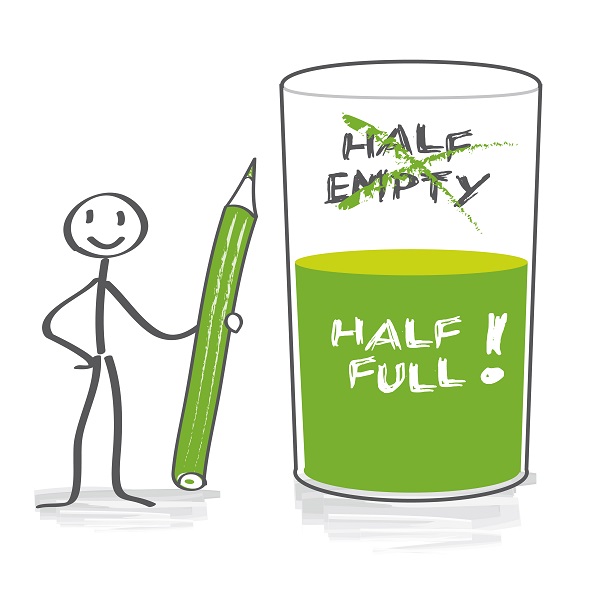Approaching Change Productively
Stacey J. Drubner, JD, LICSW, MPH

Do you embrace and seek out change, or avoid it altogether? One guarantee in life is that we will all experience transitions. Of course, how we handle change varies and may depend on our personality, sense of control or the reason behind the change. Regardless of your stance on change, there are some steps you can take to make the most of the process.
Think Before you Act & Be Prepared

Sometimes our tendency is to react immediately when we learn about a change. In particular, if anticipated changes trigger fear, anxiety, or grief, we may be tempted to plan a response, without careful thought. Responding too quickly may lead to actions you regret or can’t take back, such as an angry outburst or a rushed decision that’s not beneficial for you. It might be more helpful to take a step back and evaluate the situation, review your options and make a plan. This allows you to preserve all potential avenues.
Do your due diligence
- What’s involved in the change?
- How will this change affect you practically or emotionally?
- What’s negotiable and what isn’t?
- What is in or out of your control?
- What can you do to achieve greater control?
- What are the reliable and familiar things on which you can depend while things are in flux?
- Who can you lean on as an ally or trusted consultant?
- Get the facts you need to be better informed
Make a Plan
Use the information you gather from the above questions to create a blueprint for how to move forward. Try not to avoid thinking about change altogether as you may be unprepared for what comes next. For example, ignoring the fact that your job is not changing, or that you have to move to a new home is not a sustainable solution and can lead to stress and poor outcomes. As James Baldwin said, “not everything that is faced can be changed, but nothing can be changed until it is faced.”
You may be looking forward to a new chapter, such as retirement, but even welcome changes require thought and planning. The circumstances will dictate the level of detail or amount of flexibility that makes the most sense.
Try to Have a Healthy Mindset

Life transitions are always going to be on a continuum of good to really difficult, and how we feel may evolve throughout the process. There is no doubt that anticipating or going through change (even for the better) can trigger grief and anxiety. It’s natural and totally acceptable to acknowledge challenges and how they impact you.
When the time is right, consider how and when you will process feelings (such as resentment, disappointment, or reluctance) related to the change. Each person has a unique path and may not address the change in a linear fashion.
Allow yourself to feel disappointed and don’t be too hard on yourself. You just want to avoid a situation in which your emotions are a barrier and keep you from handling the transition in way that serves you well.
In other words, it’s not ideal to rely on negative thinking as your primary coping mechanism. As with all potentially stressful experiences, attitude plays a big part in determining how well we cope with change. With a persistent negative outlook you:
- Run the risk of using valuable energy towards unproductive behaviors that don’t support healthy change
- Can experience side effects of unchecked stress (covered below)
- May be prevented from living in the here and now at the expense a of preoccupation with the future
The most successful strategy involves a balance of dealing with the practical and emotional aspects of the change (as warranted), and focusing on how you can accept the transition and move forward in your life.
Look for Silver Linings
Considering positive impacts may be helpful in providing a softer landing for the change.
- Can this be a chance to re-evaluate your goals, values, and priorities?
- Are there opportunities for learning, personal growth, or permission to acknowledge that the current situation is not a perfect fit or stressful?
- Sometimes changes, such as a difficult medical diagnosis, can be truly devastating, with no obvious benefits. You may still find some small positives, such as realizing that you have supportive friends and family, or that you are able to focus on what really matters to you
Taking Care of Yourself is Key
Many of our feature articles discuss the concept of caring for yourself. It may seem obvious or like a meaningless slogan. Experts have come to believe that stress reduction via healthy lifestyle goals results in both physical and mental health benefits.
We recently discussed the corollary to this in our feature on the mind-body connection. Prolonged, unchecked stress has a significant impact on the body and overall health. How we think, act, and care for our bodies feeds off each other. A healthy mind results in a healthy body and vice versa.
Prolonged stress impacts:
- The brain
- Genes – such as inflammatory markers
- Systems downstream via localized health consequences
If we can manage our stress related to transitions in life, we maximize the chance to handle the change more productively and find a happier life. Most of us know what we are supposed to do but just have trouble figuring out how to do it or how to get started. Our EAP feature on healthy habits might be useful here.

Engage in a healthy lifestyle
- Keep up your regular routines, such as exercise, reading or socializing
- Maintain good sleep and nutrition habits
- Limit the use of alcohol or marijuana to cope
- Consider mindfulness activities to keep perspective
- Practice gratitude
Seek outside help if you are struggling
- Reach out to family, friends or colleagues
- Contact the EAP
- Consider professional help via a therapist or career coach
Help from the EAP
If you find that you are struggling with a life transition, the EAP is here to help. The EAP offers free and confidential services for Mass General Brigham employees and their immediate household family members. EAP records are separate from medical and HR records. Contact the EAP at 866-724-4327 or request an appointment via our online form for confidential assistance. In-person appointments are available at the following locations. Phone or Video (Zoom) appointments are available from all locations.







